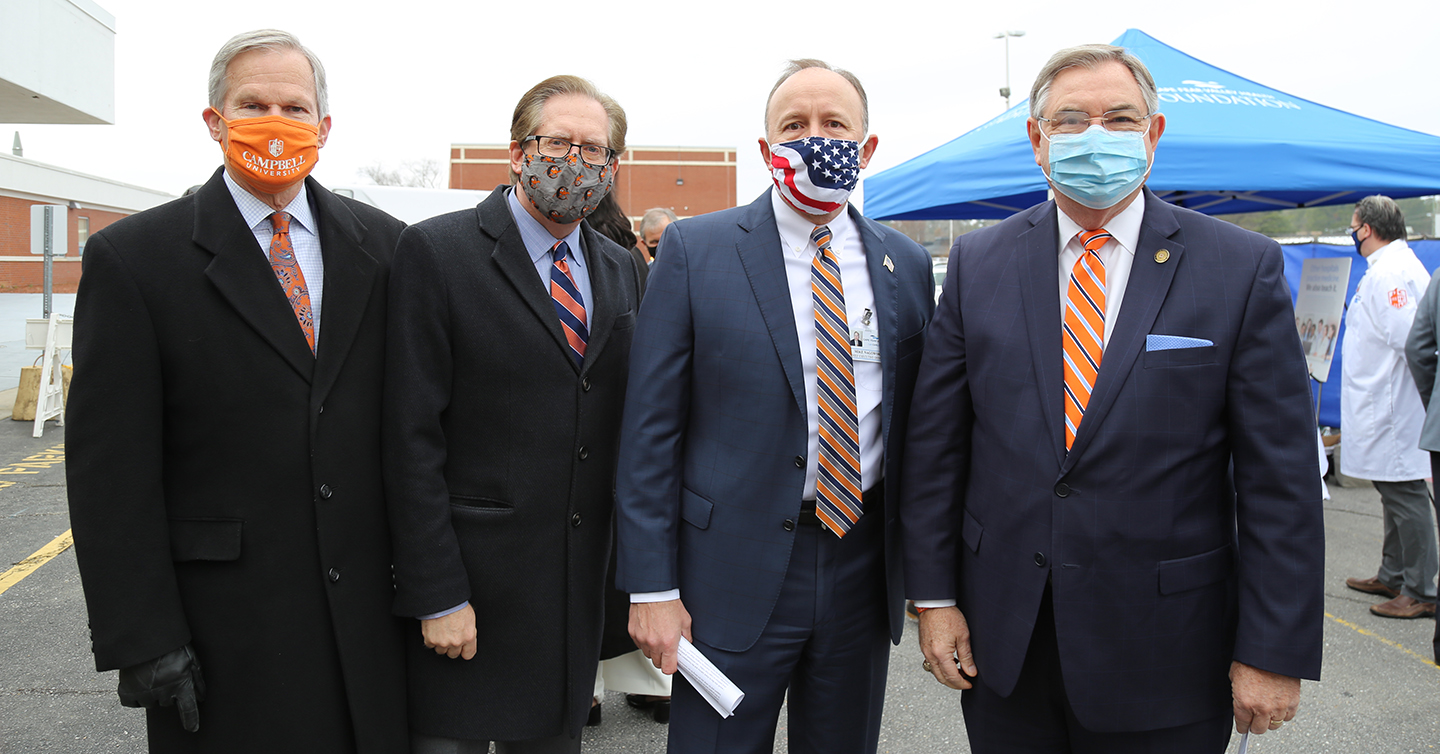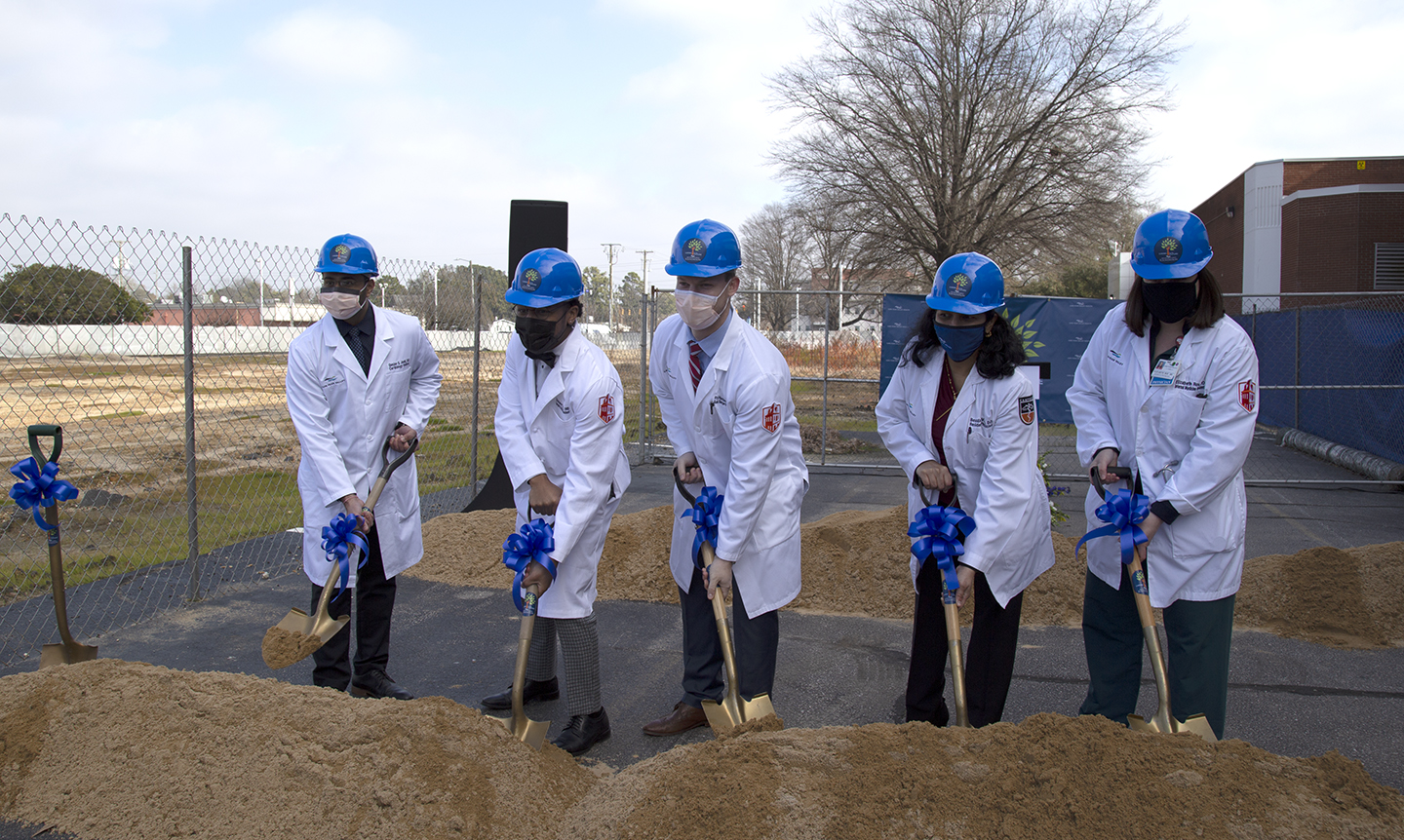FAYETTEVILLE — Cape Fear Valley Health broke ground today on a state-of-the-art education and research center for medical residency programs that will benefit Campbell University medical students for generations to come.
The Center for Medical Education & Research and Neuroscience Institute will span five floors and 120,000 square feet and will include lecture halls, classrooms and simulations labs to provide resident medical students with hands-on, applied learning with sophisticated technology, CPVH CEO Mike Nagowski said. The facility is expected to open in summer 2022.
“This new building will radically increase the number of patients we can serve, the quality of care they receive and ultimately, add significant numbers of new doctors to our region,” Nagowski said.
Cape Fear Valley is one of the six hospitals partnered with Campbell’s Jerry M. Wallace School of Osteopathic Medicine’s post-graduate residency programs. Residency for these graduates can range from an additional two years of education to an additional seven years of training, depending on the specialty. Cape Fear offers residencies for Campbell students in emergency medicine, internal medicine, cardiology, OB/GYN, surgery, psychiatry and transitional year training.

Campbell University President J. Bradley Creed said CPVH holds a special place with Campbell as the two have been partners since the launch of medical school in 2014.
“The collaboration between our institutions is Campbell’s largest for third- and fourth-year medical student clinical rotations, as well as the central hub for the Campbell Medicine Residency program,” Creed said. “A new facility for medical residency training and neuroscience education and research will be transformative in the way our medical students and residents are trained to serve patients in the Cape Fear Valley system.”
Creed said Campbell’s medical school was founded with the mission to train primary care physicians and specialists to serve all North Carolinians, but especially those in rural and traditionally underserved areas. He said the partnership with Cape Fear provides the “perfect location” to train students and residents to benefit not only Fayetteville and Cumberland County, but the entire region.
“We look forward to seeing future generations of Campbell medical and other health science students and residents fully utilize this facility for years to come,” Creed said.
According to Dr. Donald Maharty, regional associate dean of family medicine at Campbell, the University’s residency program at Cape Fear Valley Health has grown to include more than 130 doctors training in seven program areas.
“We are bursting at the seams,” he said. “The new Center for Medical Education will provide ample space for us to train up to 300 residents onsite each year. Research tells us that 50 percent of physicians go into practice within 50 miles of their residency. This means that, with our new Center for Medical Education allowing us to expand to full capacity, our residency program could bring hundreds of new doctors to our region in the next decade.”
Nagowski said residents training in the new facility will gain experience in clinical trials through Cape Fear Valley’s partnership with the Carolina Institute for Clinical Research. The Neuroscience Institute will also be located within the center, providing room for this department to grow and attract “top-notch neurologists and neurosurgeons from across the country.”


